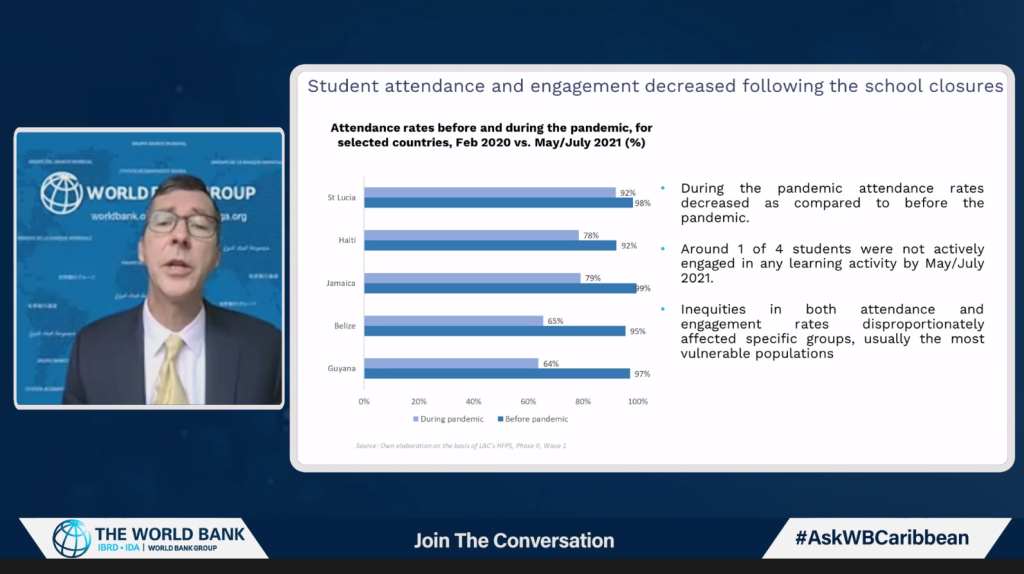The World Bank has estimated that the attendance of a number of Guyanese school children during the COVID-19 pandemic dropped by about one-third, signalling the need for interventions to advance learning recovery efforts.
According to information provided by Tim Johnston, the Bank’s human development programme leader, it is estimated that attendance rates in Guyana dropped from 97 per cent (in February 2020, before the onset of the pandemic) to about 64 per cent in July, 2021.
“(This was) an almost one-third drop by the peak of the pandemic,” Johnston said during a virtual forum hosted by the World Bank on Wednesday.
The drop in attendance, stakeholders agree, signalled some of the worrying learning losses associated with the closure of schools during the pandemic.

In fact, Johnston and the World Bank’s Director for the Caribbean, Lilia Burunciuc, noted that the Latin America and Caribbean (LAC) region as a whole experienced some of the longest school closures.
“Estimates indicate that Caribbean countries risk losing 1.3 learning adjusted years of schooling on average following the pandemic.
“However, for countries like Antigua and Barbuda, Grenada, Guyana and Jamaica, learning losses are expected to be significantly higher,” Johnston said further.
Even as countries attempted to continue engaging learners virtually, there were various constraints that curtailed adequate engagement.
In Guyana, for example, Minister of Education Priya Manickchand told the forum that educational disparities between children in hinterland communities and those on the coast prevented equal access to online learning. Limited access to the internet, electronic devices and even stable electricity were challenges.

The Education Minister, however, noted that her ministry has been robustly responding. The ministry disseminated worksheets and launched various multimedia solutions that allowed children to engage in some learning either online or through radio and/or television channels.
With the full return to face-to-face classes last month, Minister Manickchand also noted that the local education authorities have been utilising a consolidated curriculum that allow teachers to engage learners on the much-needed core topics, while revising the content that may have been missed during schools’ closures.
RECOVERY EFFORTS CRUCIAL
Meanwhile, Johnston noted that recovery efforts are crucial to prevent long term learning losses. According to him, schools should be reopened safely and back-to-school programmes should be encouraged to promote their re-enrollment.
Cash transfers to poor families who have been most affected during the pandemic, he related, can be provided.
Furthermore, he noted that children’s learning should be assessed regularly and teaching the fundamentals should be prioritised. With this, efforts should be made to increase “catch-up” learning, utilising new technology.
And finally, the program director said that children’s psychosocial well-being should be supported.







